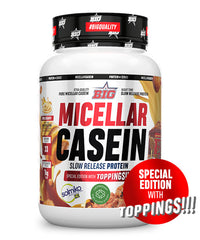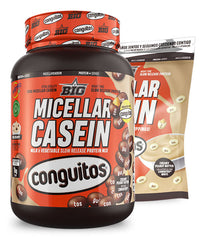
Cuttlefish memory
Sergio Guerrero
INTRODUCTION
In this new entry we will detail the pharmacodynamics and synergy produced by Real Memory , a compound whose ingredients are the well-known caffeine, along with L-Theanine.
This compound is formulated to improve concentration, increase attention levels and reduce the feeling of fatigue or tiredness during study hours, as well as for those activities that require a high demand for attention.
PHARMACODYNAMICS.
There is little more to say about caffeine, since it has been explained several times in previous posts. As you know, or at least you should, caffeine is a CNS (Central Nervous System) stimulant as it is an antagonist of adenosine receptors. L-Theanine, on the other hand, is an amino acid commonly found in tea, as is caffeine, although the latter is found in smaller quantities in tea. This, unlike caffeine, produces relaxation; Therefore, this article will detail how these two compounds act together.
L-Theanine is an analogue of two other amino acids, L-Glutamine and glutamic acid (glutamate in its ionic form), the latter being the most abundant and important excitatory neurotransmitter in the brain. This easily crosses the BBB (Blood-Brain Barrier), subsequently promoting the production of GABA, another amino acid whose main function is to be a neurotransmitter capable of inhibiting the CNS (Fig 1). As we can see, caffeine and L-Theanine are substances opposite to each other , that is, caffeine stimulates and L-Theanine relaxes .
L-Theanine induces profound changes in neurotransmission by upregulating levels of inhibitory and modulatory neurotransmitters. Shortly after stimulation of glutamate receptors, levels of the inhibitory neurotransmitters GABA and glycine increase in the brain. In turn, GABA and glycine, acting through their respective receptors, trigger increases in dopamine and serotonin in certain regions of the brain (Fig 1). In other words, L-Theanine appears to reduce excitatory pathways by activating and channeling the brain's calming and anxiolytic mechanisms. Additionally, L-Theanine administration reduces cortisol levels and increases BDNF levels . It is due to this modulating activity that L-Theanine has profound effects on improving neurogenesis and neuroplasticity and is capable of positively regulating mood, motivation, cognition and memory .

- Illustration 1: Neuromodulatory mechanism of L-Theanine
In plasma, L-Theanine concentration increased in a time-dependent manner up to 3 hours after consumption and returned to baseline 24 hours after consumption (Fig. 3). Its excretion route is through urine, where after 24 hours, the amount of L-Theanine excreted was 3.1% after ingesting a dose of 100 mg. Therefore, we can determine that after 24 hours, L-Theanine is still detectable in plasma , probably due to its storage in other places in the body.

- Figure 3: Concentration-time curve of L-theanine in plasma of a participant after ingestion of 100 mg of L-theanine via a capsule.
SYNERGY
How L-Theanine acts has already been explained, we will move on to see how it acts in combination with caffeine.
Previously, we saw how taking L-Theanine increases BDNF levels, but what is BDNF? BDNF (Brain Derived Neurotrophic Factor) is a protein responsible for the growth, maintenance and survival of neurons . BDNF prevents apoptosis (brain cell death), induces the growth of new neurons (neurogenesis) and synapses (synaptogenesis), and supports cognitive function . Higher levels of BDNF may increase cognition, mood, productivity, and memory .
BDNF plays a vital role in memory and its long-term enhancement . Long-term potentiation is "a form of synaptic plasticity that is widely considered a cellular model of long-term memory." More specifically, long-term potentiation describes the long-term strengthening of synapses between neurons. It plays an important role in memory formation and retrieval in the hippocampus. Therefore, studies show that increasing BDNF may be helpful for memory maintenance . 
- Figure 4: Brain activity after ingesting 50 mg of L-Theanine.
And how do we increase BDNF? Well, an example of this is the co-ingestion of caffeine with L-Theanine. In a double-blind, placebo-controlled randomized controlled trial published in 2013 by Owen, G.N. 27 healthy participants were recruited where they would consume: 50 mg of caffeine with or without 100 mg of L-Theanine to test cognition and mood.
The result was the following: the combination of L-Theanine and caffeine produced faster responses and improved accuracy during the proposed tasks. The combined treatment also led to an increase in the number of new words correctly identified in the word recognition task. This effect was significant relative to placebo at both 60 min and 90 min after ingestion. Only in the L-theanine + caffeine condition, the number of words correctly identified was greater at 60 min and 90 min. that at the beginning of the study (Fig. 5)

- Figure 5: Word recognition task: Number of words correctly identified
Regarding the response to attention, we can see Fig.6, where faster responses are observed both in those supplemented with caffeine and L-Theanine, and in those with caffeine alone; It should be remembered that caffeine is also a BDNF activator.

- Figure 6: Changes in response-attention time.
In conclusion and not to extend the article any further, the combination of L-Theanine and caffeine seems to significantly improve aspects of memory and attention to a greater extent than caffeine alone .
As for the dose to be used, it will depend on individual tolerance, but always respecting the 2:1 ratio in favor of L-Theanine . For example, Real Memory has 400 mg of L-Theanine along with 200 mg of caffeine. There have been no reported side effects from taking L-Theanine, but due to the caffeine content, consuming large doses can cause: Nausea, stomach pain, and irritability. The LD50* for L-Theanine is greater than 5 mg/kg, while that of caffeine is 10 grams, varying depending on the weight and context of the person.
LD50: Dose necessary to cause the death of 50% of subjects.
REFERENCES
- Scheid L, Ellinger S, Alteheld B, Herholz H, Ellinger J, Henn T, Helfrich HP, Stehle P. Kinetics of L-theanine uptake and metabolism in healthy participants are comparable after ingestion of L-theanine via capsules and green tea. J Nutr. 2012 Dec;142(12):2091-6. doi: 10.3945/jn.112.166371. Epub 2012 Oct 24. PMID: 23096008.
- Owen, Gail N.; Parnell, Holly; De Bruin, Eveline A.; Rycroft, Jane A. (2008). The combined effects of L-theanine and caffeine on cognitive performance and mood. Nutritional Neuroscience, 11(4), 193–198. doi:10.1179/147683008x301513
- White DJ, de KS, Woods W, Gondalia S, Noonan C, Scholey AB: Anti-Stress, Behavioral and Magnetoencephalography Effects of an L-Theanine-Based Nutrient Drink: A Randomised, Double-Blind, Placebo-Controlled, Crossover Trial. Nutrients 2016;8
- Nobre AC, Rao A, Owen GN. L-theanine, a natural constituent in tea, and its effect on mental state. Asia Pac J Clin Nutr. 2008;17 Suppl 1:167-8. PMID: 18296328.
- Lisa Scheid, Sabine Ellinger, Birgit Alteheld, Hannes Herholz, Jörg Ellinger, Thomas Henn, Hans-Peter Helfrich, Peter Stehle, Kinetics of L-Theanine Uptake and Metabolism in Healthy Participants Are Comparable after Ingestion of L-Theanine via Capsules and Green Tea , The Journal of Nutrition, Volume 142, Issue 12, December 2012, Pages 2091–2096, https://doi.org/10.3945/jn.112.166371
- https://www.uniprot.org/uniprot/P23560
- Foxe JJ, Morie KP, Laud PJ, Rowson MJ, de Bruin EA, Kelly SP. Assessing the effects of caffeine and theanine on the maintenance of vigilance during a sustained attention task. Neuropharmacology. 2012 Jun;62(7):2320-7. doi: 10.1016/j.neuropharm.2012.01.020. Epub 2012 Feb 2. PMID: 22326943.
- 8- Haskell CF, Kennedy DO, Milne AL, Wesnes KA, Scholey AB. The effects of L-theanine, caffeine and their combination on cognition and mood. Biol Psychol. 2008 Feb;77(2):113-22. doi: 10.1016/j.biopsycho.2007.09.008. Epub 2007 Sep 26. PMID: 18006208.





![CREABIG [Creapure®]](http://bigsupps.site/cdn/shop/products/producto_BIG_creabig_creapure_250g_0noflavour_500x600_8c48a126-a2a2-46a5-9bbd-8763ab82d768_200x.jpg?v=1757315967)





![CFM ISO ZERO [saco]](http://bigsupps.site/cdn/shop/files/producto_cfm_doypack_0noflavour_500x600a_200x.jpg?v=1750981452)
![CLEAR ISO ZERO [750g]](http://bigsupps.site/cdn/shop/files/producto_BIG_clearprotein_icepop_0noflavour_500x600a_200x.jpg?v=1757074297)
![CREABIG FIESTA® KOJAK® flavor - [250g]](http://bigsupps.site/cdn/shop/files/producto_BIG_creabig_kojak_0noflavour_500x600a_200x.jpg?v=1763548822)


